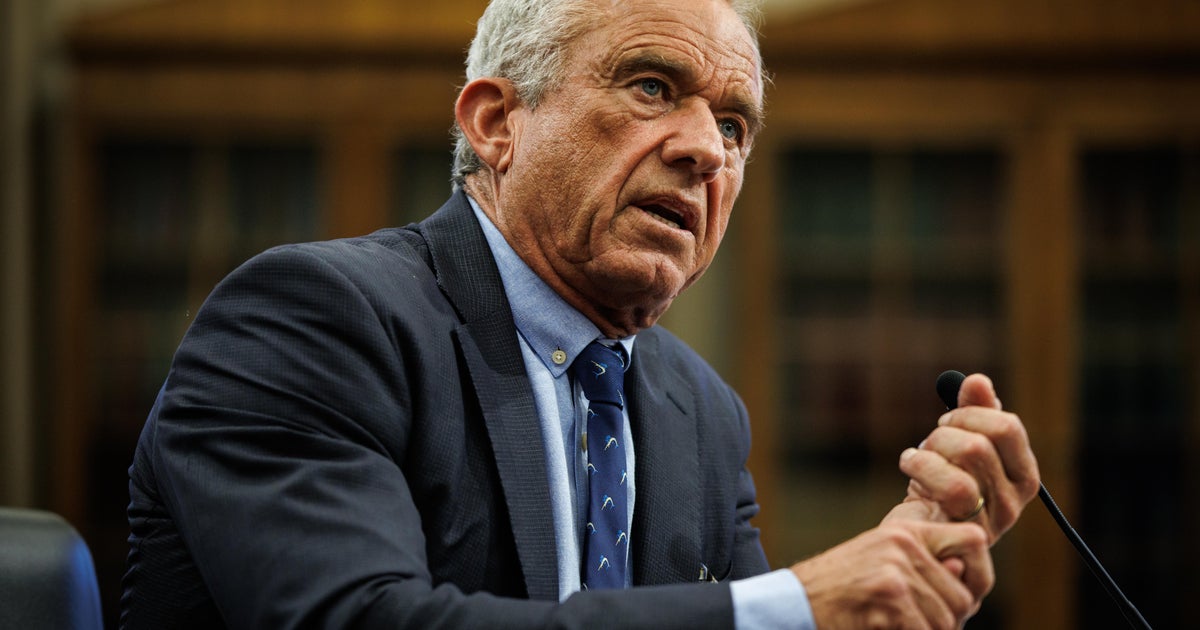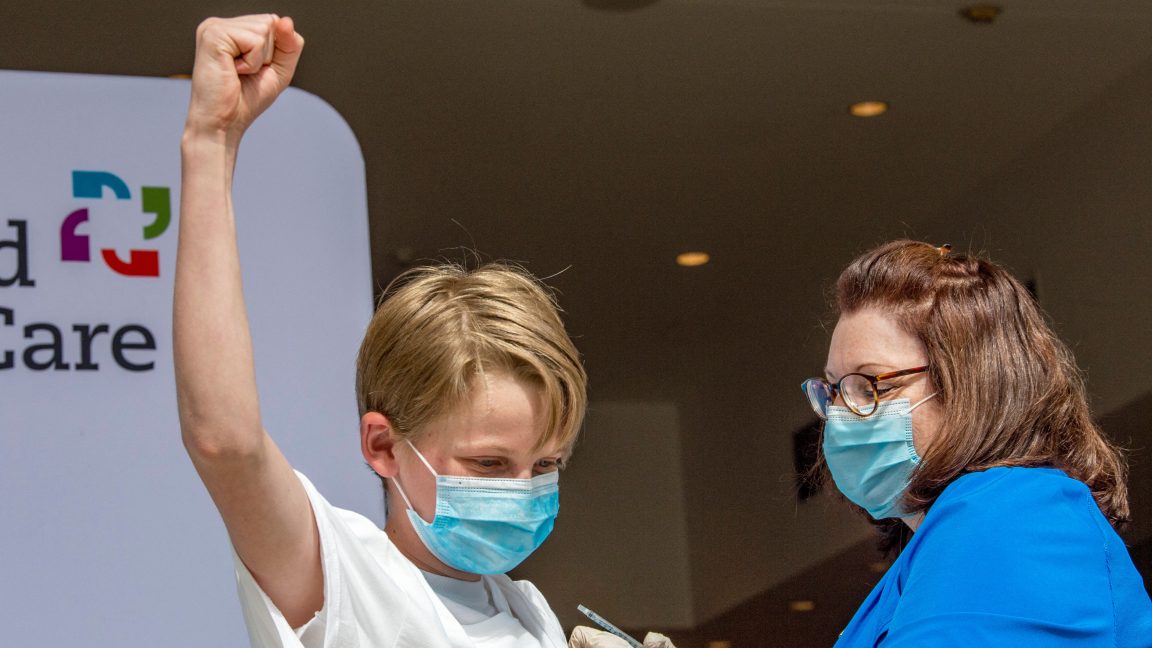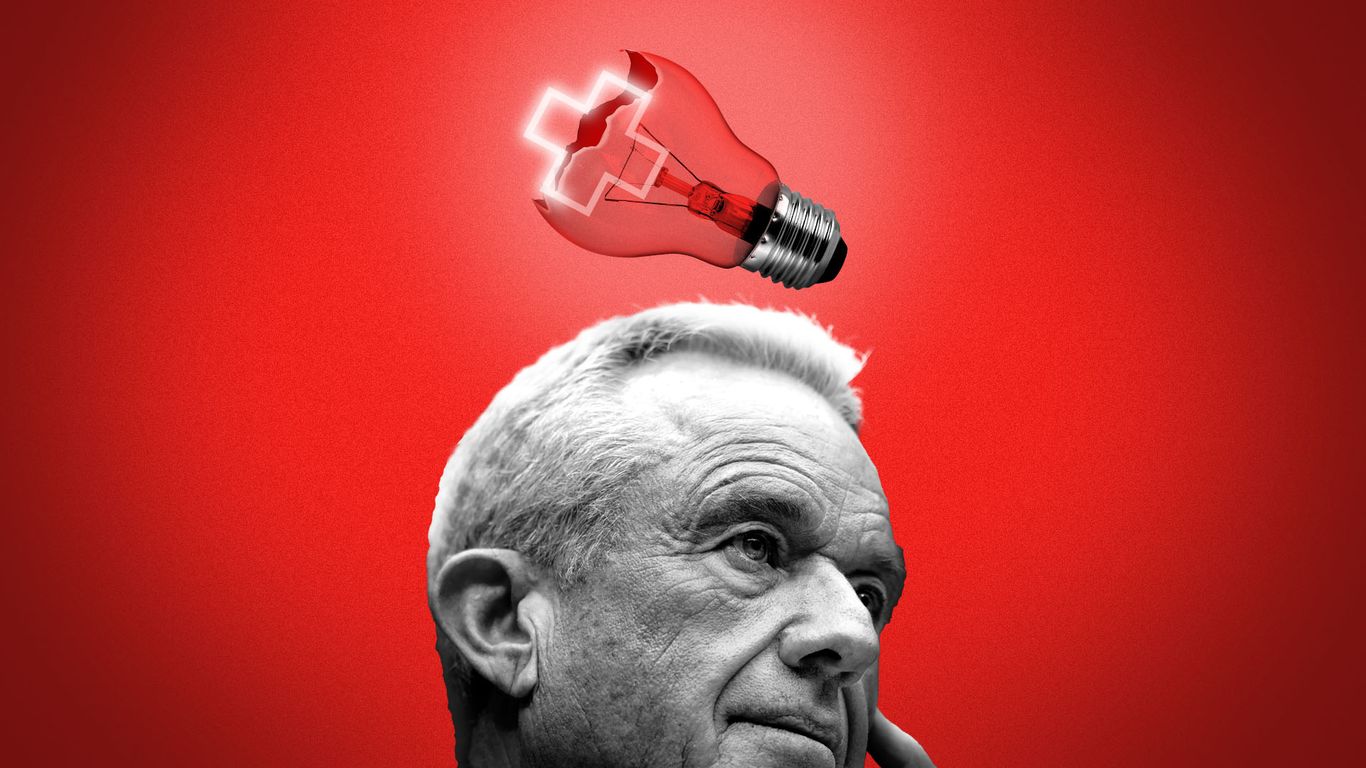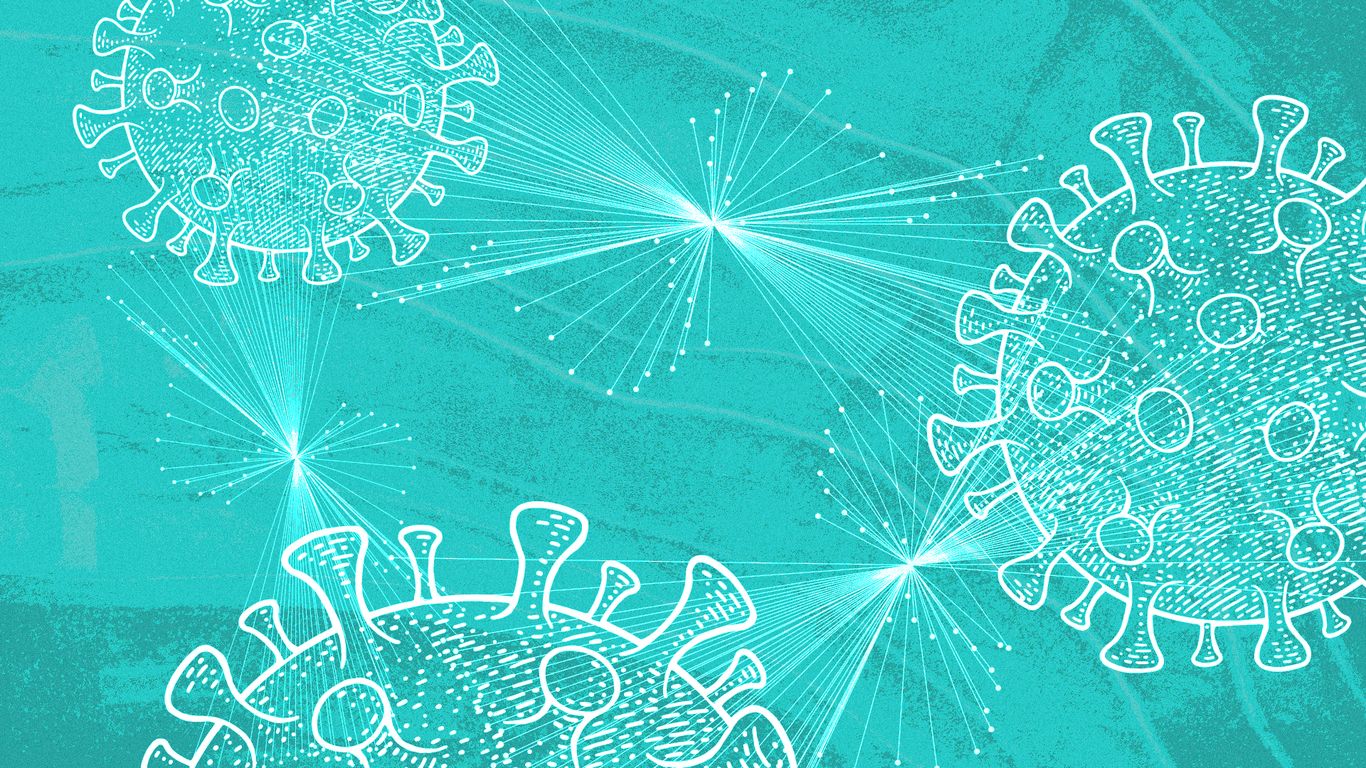RFK Jr. Faces Questions About CDC Chaos

RFK Jr. Questioned About CDC Chaos
Robert F. Kennedy Jr. is set to face questions from Democratic lawmakers and over a thousand current and former HHS staff about the chaos at the CDC. Kennedy, who was appointed to lead a vaccine safety commission by President Trump, has been accused of endangering the health of Americans with his actions. However, Kennedy has maintained that his intentions are to "clean house" and improve the safety and effectiveness of vaccines.
Kennedy's Controversial Actions
Kennedy's appointment to the vaccine safety commission has been met with criticism and concern. He has been accused of spreading misinformation and promoting anti-vaccination beliefs. In addition, Kennedy has also been accused of undermining the work of the CDC and creating confusion and chaos within the organization. This has led to increased skepticism and doubt about the safety and efficacy of vaccines, ultimately putting the health of Americans at risk.
The Impact of Kennedy's Actions
The controversy surrounding Kennedy's actions has not only caused tension within the CDC, but it has also had a larger impact on the public's trust in the organization and the safety of vaccines. With the ongoing COVID-19 pandemic, it is more important than ever to have a unified and trustworthy organization like the CDC. Kennedy's actions have caused division and confusion, which can have serious consequences for public health. It is crucial for
About the People Mentioned
Robert F. Kennedy Jr.
Robert F. Kennedy Jr. is an American politician, environmental lawyer, and author, born on January 17, 1954, in Washington, D.C. He is the third of eleven children of Robert F. Kennedy, the U.S. Attorney General, and Ethel Skakel Kennedy. His family's political legacy includes his uncle, President John F. Kennedy. Kennedy's early life was marked by personal struggles, including drug addiction, which led to his arrest for heroin possession in 1983. However, he later redirected his life towards environmental advocacy and public service. Kennedy graduated from Harvard University in 1976 with a degree in American history and literature and later earned a law degree from the University of Virginia in 1981. He began his career as an assistant district attorney in Manhattan but soon shifted his focus to environmental law. In 1987, he received a master's degree in environmental law from Pace University, where he taught environmental law from 1986 to 2018 and co-founded the Environmental Litigation Clinic. Notably, Kennedy is the founder of the Waterkeeper Alliance, a global clean water advocacy group, and Children's Health Defense, which focuses on childhood chronic diseases and environmental exposures. He has been recognized for his environmental activism, including being named TIME Magazine's "Hero for the Planet" for his efforts in restoring the Hudson River. Kennedy has also been involved in high-profile legal cases against companies like DuPont and Monsanto. In recent years, he has been a vocal figure in vaccine skepticism and public health controversies. In the 2024 U.S. presidential election, Kennedy initially ran as an independent candidate before endorsing Donald Trump. Currently, his involvement in public life includes controversial stances on health and environmental issues. Despite these controversies, his work in environmental law and advocacy has had significant impacts on public health and environmental protection.
About the Organizations Mentioned
CDC
The **Centers for Disease Control and Prevention (CDC)** is the premier national public health agency of the United States, operating under the Department of Health and Human Services and headquartered in Atlanta, Georgia. Its primary mission is to protect public health and safety through disease control, injury prevention, and health promotion both nationally and globally[1][8]. Established in 1946 initially as a single "Center for Disease Control," the agency expanded and reorganized in 1980 into multiple specialized centers, reflecting a broader focus beyond infectious diseases to include environmental health, chronic disease, occupational safety, and health education[7]. The CDC comprises various centers and institutes, such as the National Center for Immunization and Respiratory Diseases, the National Center for Chronic Disease Prevention and Health Promotion, and the National Institute for Occupational Safety and Health (NIOSH), among others. These centers enable the CDC to address a wide array of public health challenges through research, surveillance, policy development, and education[2]. It also plays a key role in emergency preparedness and response, demonstrated notably during the COVID-19 pandemic, where its guidance shaped public health actions despite complex political and social dynamics[8]. Key achievements include pioneering epidemiological research, controlling outbreaks of infectious diseases, advancing vaccine safety and immunization programs, and addressing emerging health threats such as obesity and diabetes. The CDC is recognized for disseminating authoritative health information, including the widely cited Morbidity and Mortality Weekly Report (MMWR), and for its global collaborations with health organizations worldwide[1][3][8]. Currently, the CDC is undergoing organizational adjustments to focus more intensively on infectious diseases, as part of the 2025 Department of Health and Human Services reorganization. This includes absorbing the Administration for Strategic Preparedness and Response while shifting some functions like occupational safety to new entities[1]. The agency’s comprehensive approach, backed by science and government funding, positions it as a critical leader in public health innovation, disease prevention, and health security i
HHS
The **United States Department of Health and Human Services (HHS)** is a cabinet-level executive branch department of the U.S. federal government tasked with protecting the health of all Americans and providing essential human services, especially for vulnerable populations[1][3]. Founded originally as the Department of Health, Education, and Welfare (HEW) before the Department of Education split off in 1979, HHS’s mission is to improve the health, safety, and well-being of the nation[1]. HHS oversees numerous agencies and programs that cover a broad spectrum of health and social services, including Medicare, Medicaid, the Children’s Health Insurance Program (CHIP), and the administration of the Affordable Care Act marketplace[4]. It also plays a significant role in public health policy, biomedical research, disease prevention, and social welfare initiatives. The department is led by the Secretary of Health and Human Services, appointed by the president and confirmed by the Senate, with the Surgeon General heading the U.S. Public Health Service Commissioned Corps[1][6]. Key achievements of HHS include pioneering advances in medical research through agencies like the National Institutes of Health (NIH), managing public health emergencies, expanding health insurance coverage, and implementing programs to reduce poverty and improve child welfare[3]. The department has also been instrumental in addressing public health crises such as pandemics, opioid addiction, and chronic disease management. Currently, HHS remains one of the largest federal agencies, continuously evolving to address emerging health challenges and leveraging technology for better healthcare delivery and data management[3][7]. Despite its broad mandate, HHS has faced criticism in areas such as transparency, ranking low in Freedom of Information Act responsiveness in past evaluations[1]. Overall, HHS is a cornerstone institution in U.S. health and social policy, driving innovations in health care, scientific research, and human services that impact millions of Americans daily, making it a critical entity at the intersection of public health, technology, and government service[3][
Democratic Lawmakers
The term **"Democratic Lawmakers"** broadly refers to elected officials affiliated with the Democratic Party in the United States at various government levels rather than a single formal organization. However, the closest formal entities related to organizing and supporting Democratic elected officials include the **Democratic National Committee (DNC)** and the **Democratic Legislative Campaign Committee (DLCC)**, which play key roles in party leadership, electoral strategy, and legislative coordination. The **Democratic National Committee (DNC)**, established in 1848, is the principal executive leadership body of the Democratic Party. It manages party affairs between national conventions, coordinates strategy to support Democratic candidates nationwide, and organizes the quadrennial Democratic National Convention to nominate presidential candidates. The DNC focuses on campaign strategy, fundraising, polling, and establishing the party platform but does not exert direct control over elected officials. It is composed of state chairs, vice-chairs, and over 200 members representing all states and territories, operating under a charter and bylaws. Its activities include supporting candidates at local, state, and federal levels, and it often works closely with a sitting Democratic president[1][2]. Complementing the DNC, the **Democratic Legislative Campaign Committee (DLCC)** is dedicated specifically to electing Democrats to state legislatures. It invests in campaigns for statehouse races, providing funding, strategic support, and targeting key races to maintain or gain legislative majorities. For example, the DLCC recently invested six figures to support Democratic candidates in New Jersey’s Assembly to protect the party’s majority[4]. Democratic lawmakers in Congress are further organized through House Democratic leadership, comprising roles such as the Democratic Leader, Whip, Caucus Chairman, and others who coordinate legislative programs and party strategy on the House floor[3]. Notable aspects of these organizations include their long-standing history (DNC being the oldest continuous party committee since 1848), their comprehensive role in electoral politics from grassroots to presidential campaigns, and their evolving

















